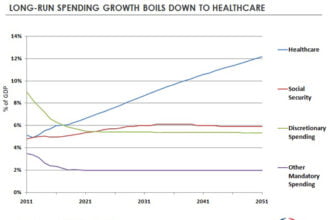The second day of TEDMED took off full swing, with an agenda packed with speakers and discussions. While there were many presenters of new inventions as well as a certain “gee-whiz” quality to some discussions, all sessions made one thing clear: resolving our biggest health challenges requires something other than the latest widget. We’re going to need more collaboration among a wider diversity of disciplines. Furthermore, the patient, more and more seen as a consumer, will play a central role.
The second day of TEDMED took off full swing, with an agenda packed with speakers and discussions. While there were many presenters of new inventions as well as a certain “gee-whiz” quality to some discussions, all sessions made one thing clear: resolving our biggest health challenges requires something other than the latest widget. We’re going to need more collaboration among a wider diversity of disciplines. Furthermore, the patient, more and more seen as a consumer, will play a central role.
Michael Graves, a renowned architect who also is wheelchair bound, talked less about designing a hospital and more about designing a physical environment in which health care is delivered. Like many speakers here whose personal experience drove their ideas, Michael spent a lot of time in in his “target” institutions – rehabilitation and physical therapy centers. His conclusion? Most hospitals aren’t designed to contribute to making you feel better, or getting you better. They’re not created from a patient perspective. He has since been known for coming up with designs that have positive effects on the health of patients.
Although not on the agenda as speakers, there were many people here from Walgreens. One of the company’s goals is to bring back something we haven’t seen for decades: the pharmacist as a community healthcare counselor. The company is redesigning its stores to resemble small clinics, getting away from crowded aisles and staff too busy to chat. This could return us to a time when customers talked to their pharmacist (and the pharmacist could talk to them), while still offering the latest in health care advances. Consider it “back to the future” with a twist.
Aheesh Shopra, the U.S. Chief Technology Officer, issued a very creative way of using IT and involving the patient/consumer to improve health care. And it was astonishingly simple: if a physician is using information technology to better manage patients, reward him or her for it. Medicare can reimburse a physician more if his or her patient outcomes are improving, and that improvement comes through better medical recordkeeping. This way, the federal government doesn’t dictate what form the information takes, but encourages better usage of that information. It was the clearest articulation I saw of “meaningful use.” As an added incentive, there’s money available to develop and improve health care IT programs from the American Recovery and Reinvestment Act (ARRA).
My dinner with Robert Jesse and colleagues of the U.S. Veterans Administration capped off my day. The VA has rolled out some very innovative electronic records’ technology, embracing the idea of making more information available to patients. While the VA isn’t the first place you might expect innovations, the agency actually is the perfect petri dish to conduct such an experiment. They serve a very large population, maintain some level of control, and all incentives are aligned. They know the barriers faced by increased information sharing: is patient data secure? Are physicians comfortable? Do patients know what to do with this information? I agree with the VA’s belief that the health care community has some obligation to help patients understand their health information. There have recently been many firms talking to the VA system about reforming the data that patients can use and interpret. With this increased transparency, consumers play bigger roles in the management of their health.
Do you agree? Is IT creating a new age of consumer (not patient) power, fueled by greater access to information? Share your thoughts with me.






